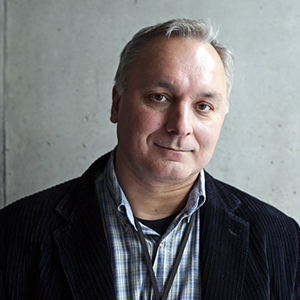
Jan Praško
Jan Prasko is a professor of psychiatry and a certified schema therapist. He has over 35 years of experience in teaching, training and supervising cognitive-behavioral in various countries. He is the president of the Czech Psychotherapeutic Association and the author of over 600 articles on psychotherapy research and practice (HI=29), and over 80 monographies. He specializes in working with patients with complex mental disorders, such as OCD, personality disorders, anxiety disorders, trauma, and bipolar disorder. He is passionate about sharing his knowledge and skills with other professionals and helping them improve their clinical outcomes.
River of Life Method: A Technique for Group Schema Therapy
The River of Life Method is a novel technique for group schema therapy that uses the metaphor of a river of life to help patients visualize and understand their life story and their schemas. The River of Life Method can enhance the effectiveness and efficiency of group schema therapy by fostering self-awareness, empathy, validation, and change. The workshop is suitable for therapists who are interested in learning more about group schema therapy and the River of Life Method. In this workshop, we will introduce the practical steps and the clinical applications of the River of Life. We will cover the following topics: • The theoretical background and rationale of the River of Life Method • The structure and process of the River of Life Method • The role and skills of the therapists and the helpers in facilitating the River of Life Method • The benefits and challenges of using the River of Life Method in group schema therapy The workshop will also include experiential exercises to illustrate the use of the River of Life Method.
Parallel Process In schema therapy and Supervision
Co-Presented with Ilona Krone & Marie Ociskova
The parallel process is a psychosocial phenomenon where the relationship dynamics between the therapist and the client are repeated in the supervisory relationship between the therapist and the supervisor. The concept of the parallel process can be a useful tool for understanding and solving problems in therapy. However, it can induce supervision drift or block the supervision process.
Objective:
This lecture aims to familiarize the reader with parallel processes in schema therapy supervision and discuss how to manage this phenomenon in supervision.
Method:
The lecture provides an overview of theoretical constructions and empirical studies related to the parallel process. Case vignettes were collected from trainees, training leaders and supervisors to provide real-life examples of how self-reflection and self-experience can enhance the understanding of parallel process in schema therapy training, practice, and supervision.
Results:
Interventions focused on the parallel process within supervision can help understand what is happening in the client-therapist relationship and can help focus on therapeutic and supervisory practices. Schema therapy interventions such as guided discovery, psychoeducation, imagery rescripting, cognitive techniques, role-playing, dialogue of modes, and chairwork might reveal and elaborate the parallel process.
Conclusion:
Supervisors and supervisees should acknowledge and be vigilant about the diverse manifestations of parallel processes and leverage their potential for supervision and therapeutic interventions.

